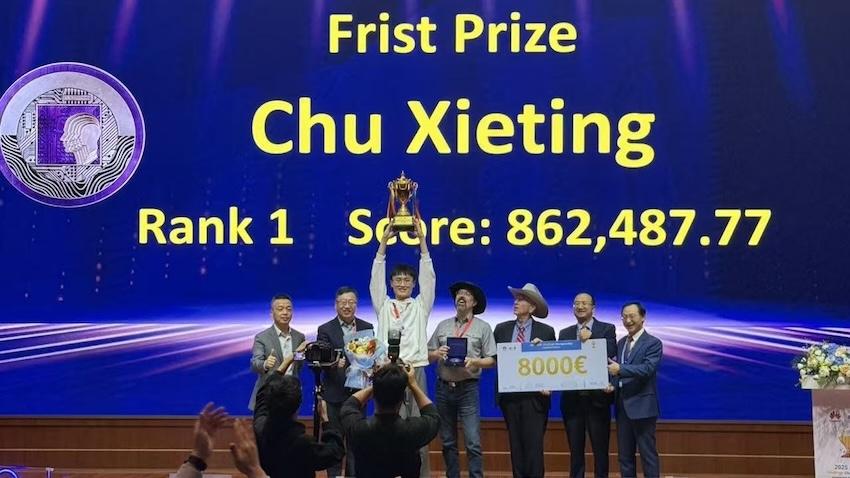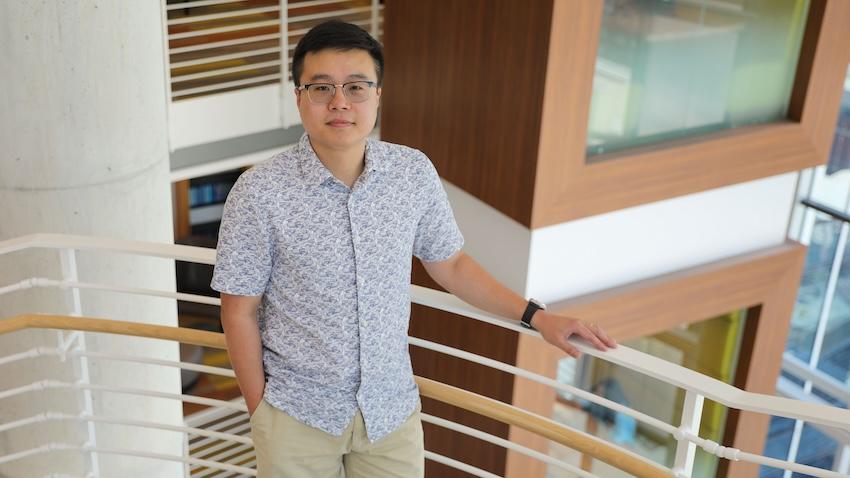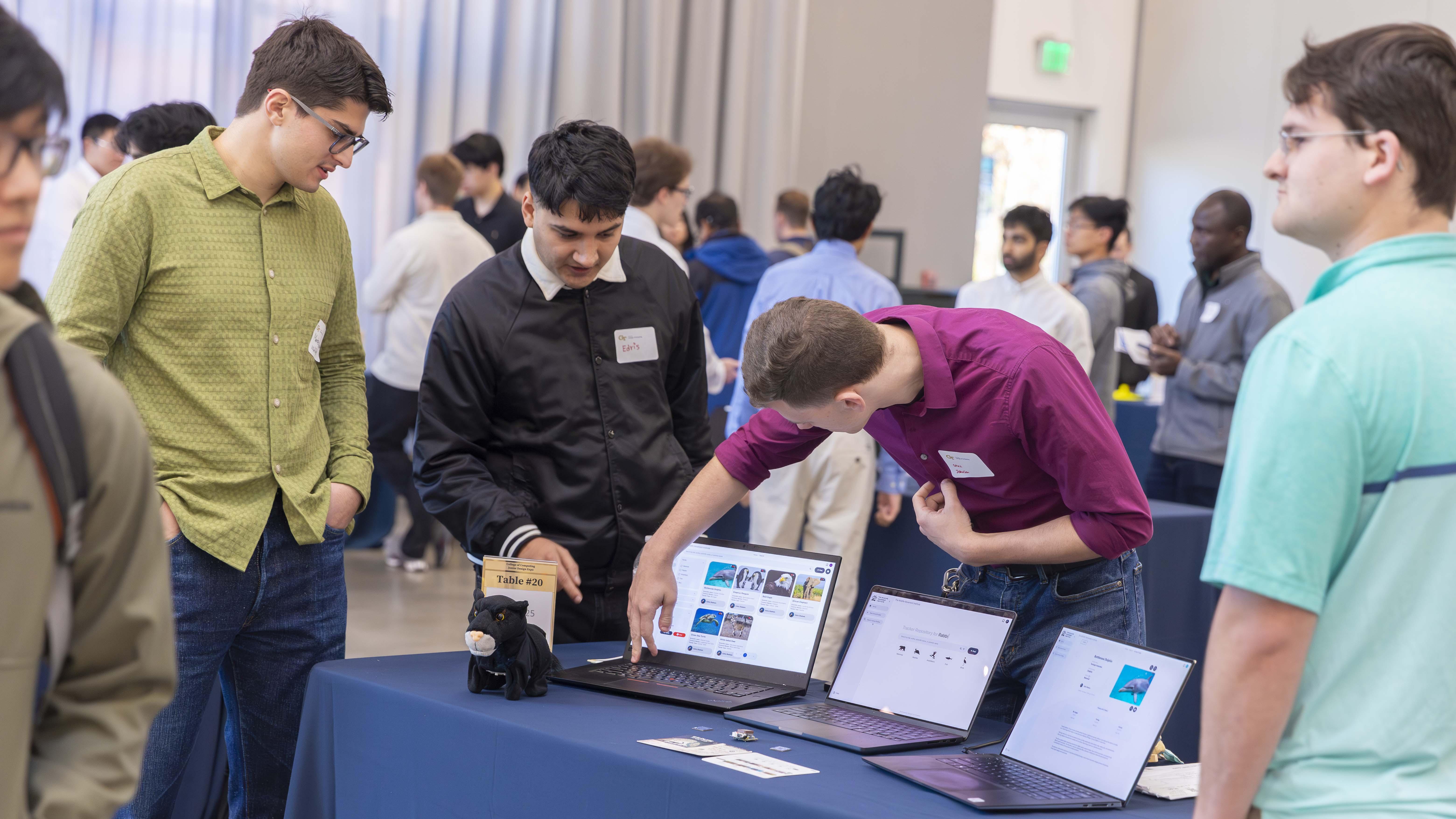
New CS Faculty Member Aims to Increase HPC Efficiency, Accessibility
Willow Ahrens, a new assistant professor in the School of Computer Science, is working to make programming high-performance computers more accessible and efficient through domain-specific languages.
Ahrens received her Ph.D. in computer science from the Massachusetts Institute of Technology in 2024. As she worked on high-performance computing (HPC) projects, she noticed the significant programming effort required by supercomputers, along with the need for specialized coding for data and hardware. Ahrens developed an interest in array programming because the concept was ubiquitous and easy to learn, but could also be readily mapped to massively parallel computers.

“Compilers are generators of specialized code, so I’m driven to produce domain-specific languages because we can write programming languages that work at a higher level and then use compilers to adapt that and make supercomputers easier to use for everyone,” Ahrens said.
As demand for processing power grows, Ahrens said efficiency in HPC is more important than ever.
“As energy impacts from AI are rising and the size of AI models grows larger, we need to be able to use our supercomputers more efficiently,” she said. “That comes down to writing code more efficiently to target them.”
Ahrens also wants to make supercomputers easier to program. As transistor density approaches its peak, more specialized hardware is required.
“Having compilers that can adapt existing codes to target new hardware or come up with languages that can be retargeted towards different hardware has become increasingly important,” she said.
Looking ahead, Ahrens said she is excited to move beyond array abstractions to focus more on other data structures and how they interact with compilers.
What interests you about working at Georgia Tech?
Georgia Tech is the definitive institution for research into high-performance computing, and I’m excited to be researching compilers and programming languages for HPC with the brilliant students and faculty here at Tech.
What will your research consist of?
My research will focus on how we can use compilers, programming languages, and database optimization to make it easier for everyone to program supercomputers. Currently, experts in high-performance computing must handwrite variations of even the simplest programs for each data structure and architecture to achieve optimal performance. I’m interested in how compilers can automate techniques discovered by HPC programmers to make them more widely applicable.
How did you get interested in this field of research?
As a high schooler growing up in Los Alamos, I was introduced to computer science through the New Mexico Supercomputing Challenge, a statewide programming competition. Since then, I’ve been captivated by the challenge of programming these systems. HPC codes are often tens of thousands of lines, highly detailed, and difficult to write by hand. It was my continuing experiences with HPC that sparked an interest in whether there might be a way to automate HPC code generation.
What are you most looking forward to in your new position?
I enjoy collaborating with students to build powerful new systems. My goal is for students to find confidence and joy in solving difficult problems. I enjoy building systems that people use, and I plan to pursue a research agenda that prioritizes software usability and programmer productivity.
What do you enjoy doing in your free time?
In my free time, I enjoy glassblowing. It’s a grounding process that involves working with your hands, teamwork, and playing with fire. Glassblowing connects me to the physical world. I appreciate the balance it offers to the theoretical work of computer science.


